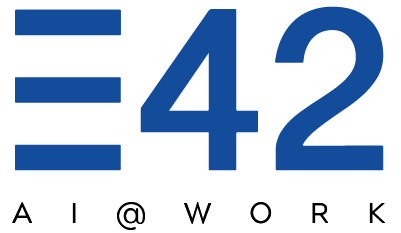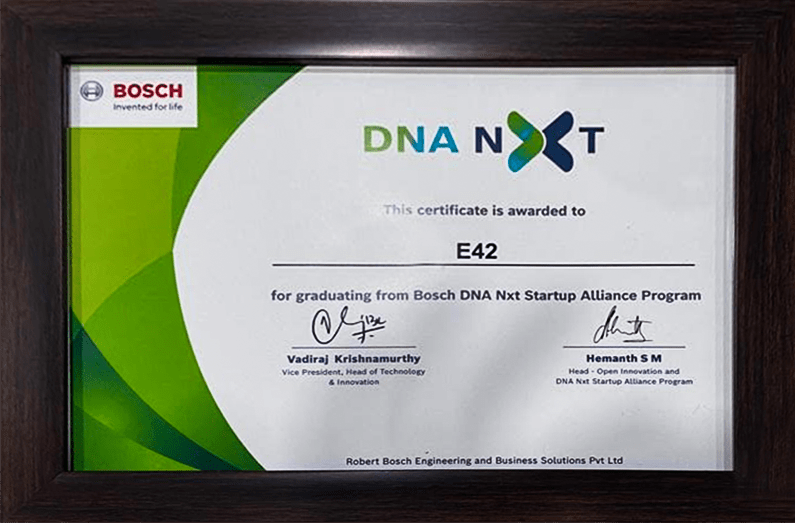Imagine you’re the CEO of a burgeoning e-commerce company. Every day, you’re inundated with a deluge of data—customer reviews, sales reports, social media posts, market trends, and more. The information is valuable, but the sheer volume is overwhelming. How do you make sense of it? How do you extract meaningful insights from this sea of unstructured data? And most importantly, how do you leverage these insights to make strategic decisions that propel your business forward? That’s where Cognitive Process Automation solutions play a pivotal role.
These solutions are the secret weapon in the battle against information overload. Cognitive Process Automation (CPA), at its core, is a sophisticated fusion of artificial intelligence (AI), Natural Language Processing (NLP), and data analytics. Leveraging CPA can lead to the creation of impactful AI solutions such as intelligent ‘co-workers’ or virtual assistants who are capable of comprehending and handling extensive unstructured data, all the while evolving, adapting, and enhancing their capabilities with each passing moment.
Consider this real-life example: Airbus, a leading aircraft manufacturer, leveraged CPA for warehouse management. By automating complex tasks and analyzing unstructured data, they were able to streamline their operations, improve efficiency, and make more informed strategic decisions. This is just one of the many ways CPA solutions can revolutionize business strategy.
Here’s what this article covers:
Leveraging NLP in Cognitive Automation Solutions for Invaluable Insights
Imagine you’re standing in the middle of a bustling city square. Around you, thousands of conversations are happening all at once. It’s a cacophony of voices, a whirlwind of words. Now, imagine if you could make sense of all those conversations, extract meaningful insights from them, and use those insights to make strategic decisions. That’s the power of NLP in Cognitive Process Automation tools.
A Real-World Use Case:
Let’s take a closer look at a global consumer electronics company. They’re about to launch a new product, and they want to know what potential customers think. They could conduct surveys or focus groups, but that would only give them a limited view. Instead, they turn to NLP which enables them to dive into the ocean of unstructured data—customer reviews, social media posts, forum discussions, and surfaces with a treasure trove of insights. It’s like having a super-powered market research team that works at lightning speed, 24/7.
Through sentiment analysis, NLP gauges public opinion about similar products. It’s not just about whether people like or dislike the product; it’s about understanding why. Is the battery life too short? Is the user interface confusing? These are the kinds of insights that can make or break a product launch.
But NLP goes even further. It can identify emerging trends and preferences among consumers. Maybe there’s a growing demand for eco-friendly products, or perhaps people are looking for devices that can integrate with their smart homes. By staying ahead of these trends, the company ensures that the new product meets the evolving needs of its customers.
In the realm of business, knowledge reigns supreme. Through the intricate mechanisms of NLP embedded within cognitive automation solutions, enterprises possess a formidable tool to elevate their decision-making prowess and revolutionize their strategic endeavors.
Data Analytics: Illuminating the Path with Unmatched Precision
Within the landscape of enterprise process automation, data analytics stands as the stalwart, wielding its immense power to illuminate the path to smarter, data-driven decisions. But what lies beneath this technological marvel that makes it such a pivotal component? Let’s journey deeper into the technicalities to comprehend its true essence.
Imagine a financial institution meticulously fine-tuning its lending process, where every decision holds vast financial consequences. Traditionally, this task was a labor-intensive and time-consuming process, prone to human error. Enter data analytics, equipped with the capability to transform the financial services provider’s ordeal into a well-oiled machine of decision-making prowess. Let’s dissect how:
Advanced Data Modeling
At the core of this transformation is advanced data modeling in which historical data on loans becomes the primary resource for a gamut of insights. Through the marriage of data analytics and cognitive automation solutions, this data isn’t just analyzed; it’s dissected, examined, and distilled into predictive models of remarkable complexity.
Predictive Precision
AI models delve into the essence of borrower behavior to analyze countless variables. Credit scores, employment history, income, outstanding debt, and even behavioral patterns gleaned from historical data become the building blocks. The objective is clear—to predict the likelihood of a borrower defaulting on a loan with unparalleled precision while driving meticulous enterprise process automation within the loan department.
Risk Mitigation
The outcomes of AI-led reduction in risks are transformative. The institution can now, in real-time, assess loan applications with a level of accuracy impossible for human underwriters to match. The risk of bad loans is drastically reduced. The institution can make data-informed decisions on lending criteria, interest rates, and credit limits. Each decision is backed by statistical evidence, ensuring loans are granted to individuals with a higher probability of repayment.
Resource Allocation and Efficiency
Beyond risk reduction, data analytics in cognitive automation solutions equips the institution with the ability to allocate resources efficiently. It can identify which segments of the market pose the least risk and offer the highest returns. It can adapt to shifting economic conditions and respond promptly to emerging trends. The result is not just financial stability but enhanced competitiveness in a dynamic landscape.
Customization and Personalization
Furthermore, the marriage of data analytics and cognitive automation solutions fosters a degree of customization and personalization that is unprecedented. Every loan decision can be tailored to the specific needs and circumstances of the applicant. Interest rates can be finely tuned to reflect risk profiles accurately. This level of precision not only attracts borrowers but also ensures optimal returns for the institution.
Competitive Edge
In the highly competitive financial industry, this analytical edge is invaluable. It’s the key to unlocking new market segments, expanding portfolios, and achieving sustained growth. The institution can confidently navigate economic uncertainties, adjusting its lending strategies with the agility that can only be achieved through data-driven insights.
Conclusion: A Technological Renaissance
As we continue to ride the wave of enterprise process automation solutions, the synergy between data analytics and cognitive automation solutions has become a cornerstone of modern business strategy. It’s not just a tool; it’s the essence of data-driven decision-making, where each choice is guided by the wealth of insights extracted from vast data oceans. It’s a beacon lighting the path toward a future where precision and efficiency reign supreme, ensuring businesses not only survive but thrive in an increasingly complex and competitive world.
Make your Enterprise Intelligent with E42
E42 is a no-code Cognitive Process Automation (CPA) platform to create multifunctional AI co-workers that automate enterprise functions across verticals and domains ranging from automobiles and BFSI to telecom, manufacturing, and more. By maximizing efficiency and scalability, and minimizing the human workload, E42 is disrupting the enterprise automation space to deliver a hassle-free user experience. To kickstart your enterprise automation journey, write to us at interact@e42.ai !



